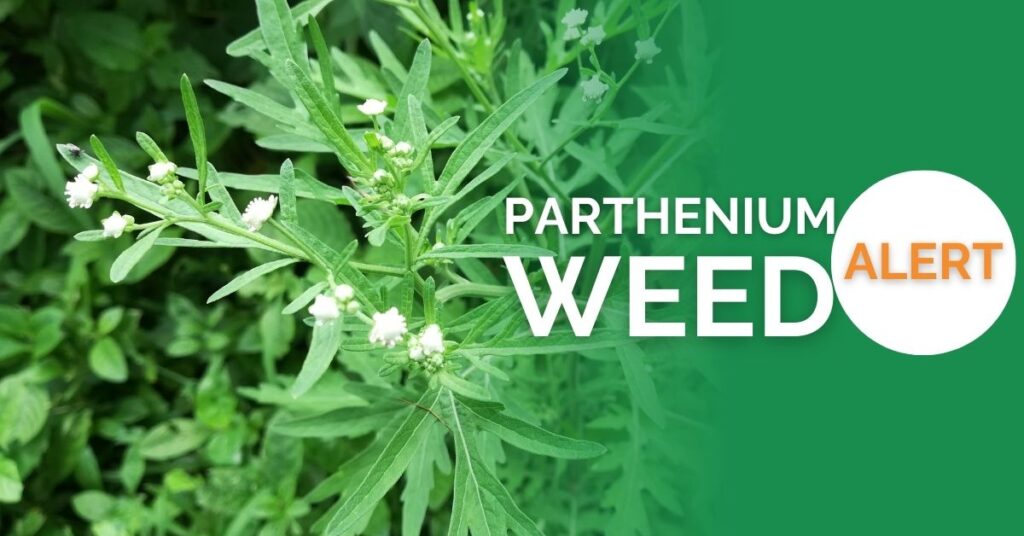
Parthenium is a noxious weed that can have negative impacts on humans, animals, and the environment alike.
Feed Central is very conscious of the risk of Parthimium in hay in the affected Queensland Area, and makes all efforts to minimise risk, including ensuring there is no trade or transport of hay from these affected areas into NSW.
Parthenium weed is prohibited in NSW under the NSW Biosecurity Act 2015. The prohibition applies to all parts of the plant, dead or alive. Approximately 60 million hectares of Queensland are affected by parthenium weed. If the feed you are selling was grown or produced in one of these areas, it must not be sold or donated into NSW unless it is completely free of parthenium weed. Penalties up to $2.2million apply. People importing feed into NSW from another state should always obtain a Fodder Vendor Declaration, such as the one provided by the Australian Fodder Industry Association, so that they know what they’re buying.
If you’re involved in selling or transporting feed that was cultivated or produced within these affected Queensland areas, caution is essential. The feed must be entirely free of parthenium weed before being transported into NSW.
Impact on Humans and Livestock
Parthenium weed puts humans at risk of both respiratory and skin issues, including allergic reactions.
Livestock are at risk of kidney damage, allergic reactions, and the risk of the flavour of their by-products being contaminated by the weed.
Growth
Parthenium releases chemicals that inhibit the growth of surrounding plants, allowing it to rapidly outgrow surrounding plants. The weed can grow in a variety of areas, but the habitat most conducive to its growth is alkaline clay-loam to heavy black clay soils, summer rain, and bare soil sites.
The plant can grow and geminate in as little as four weeks, with as many as 15,000 seeds produced yearly by each plant.
Prevention and Management
Vehicles and machinery must be fully cleaned and high-risk sites checked for plants. In cases where parthenium plants are found, call 1800 680 244 for advice on next steps.
By staying informed and adhering to these guidelines, we contribute to maintaining the integrity of our agricultural landscapes and safeguarding our industries.